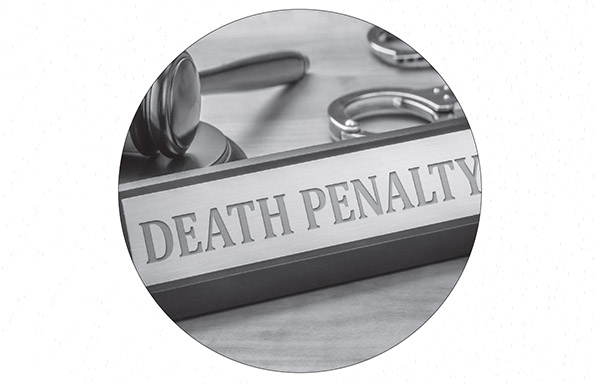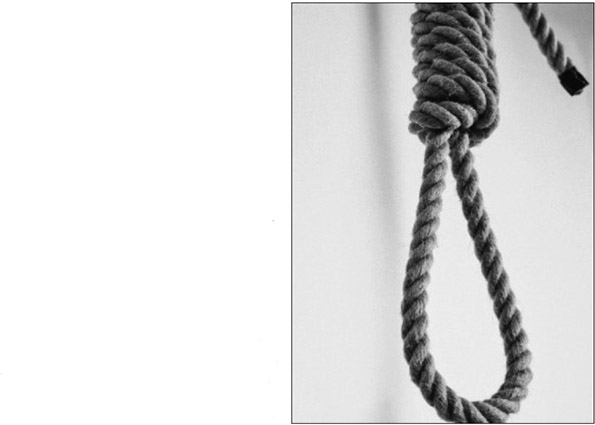Crime refers to an action committed in violation of the law. Crimes under criminal law may be divided into three categories. It is the transgressions of national interest, the transgressions of social interest, and the transgressions of personal interest. The transgressions of national interest includes civil war, obstruction of official duties, and the transgressions of social interest includes crimes involving explosives and arson. Finally, the transgressions of personal interest include crimes such as murder, injury, assault, and rape. Since ancient times, people have lived together and conflicts have arisen, so various crimes have occurred in that process. As a result, the law punishes those who transgress, so that the same crime does not happen again. Currently, the strongest punishment is the death penalty, which deprives criminals of their lives and permanently removes them from society. The death penalty exists in Korea, but it has been virtually abolished. Since the execution of 23 people on 30th December 1997, the death penalty has not been executed. As a result, Amnesty International classifies Korea as ‘substantial abolition of the death penalty’ based on this fact. However, brutal crime is now continuing. Kim Tae-hyun, consistently stalked victim A. He met A last year through an online game. Also, he is under suspicion of murdering A, A’s mother and sister. In another case, a younger brother was found to have killed his sister last year at her home for nagging. He left her body on the roof of her apartment for 10 days before dumping it in a farm waterway in Incheon. People are asking for the reinstatement of the death penalty because there are so many brutal crimes murders without a reasonable motive. Therefore, these CBT reporters investigated the arguments for and against the death penalty.
[ AGREEMENT ]
“I support the death penalty, which can severely punish criminals who commit violent crimes, for three reasons.”
First, it is based on research that the crime rate has increased since the worldwide abolition of the death penalty. For example, according to the United Nations, the British government abolished the death penalty in 1965, with statistics showing a 60% increase in homicide over the next 20 years. In Korea, recidivism also accounts for a large proportion of the crime rate. According to the Ministry of Justice, the recidivism rate over the past three years is 5.5%. The National Police Agency also argues that the rate of repeat crimes should be lowered through systematic management and probation. However, the practice of the death penalty could be one way to prevent recidivism, because there are no practical alternatives. In addition, retribution, one of the purposes of criminal law in Korea, is that the essence of punishment lies in proper penalty. Based on this, the death penalty can serve the purpose of retribution and further alert the public about crime.
Furthermore, in a debate on the theme of ‘survival of the death penalty,’ lawyer Lee Jae-kyo suggested that the death penalty can also prevent crimes. Lawyer Lee Jae-kyo argued that the death penalty should not be abolished completely, saying that it is difficult to lower the murder rate in a society where “Whatever I do, my life is guaranteed.” With this, Ahn Jung-kwang, a psychology professor at CBNU, said, “We can reduce the crime rate by imposing strong punishment on criminals.” He talked about the relationship between the death penalty and the crime prevention rate because humans have a tendency to resist the system. As a result, punishment like the death penalty can create a negative social climate for the crime.
Second, it can be based on the Constitutional Court’s opinion submitted by the National Human Rights Commission of Korea in July 2009 on the abolition of the death penalty. They defended the death penalty, saying, “Every human being has equal rights, and anyone who steals others’ rights should be punished accordingly.”
The Constitutional Court commented, “Restriction of life means a total deprivation of the right to life. As long as the death penalty applies only in exceptional cases, where the inevitability to protect other lives of at least equal value or no less public interest is sufficient by the principle of proportionality, it should be implemented.” Therefore, we can see that life has an equal value, and that the death penalty should not be abolished for the sake of victims who have been unjustly victimized.
Also, Lee Soo-jung, professor of criminal psychology at Kyunggi University, said that the death penalty is needed in some cases, ‘The primary purpose of criminal law is to be punished for wrongdoing and to realize social justice by punishing criminals.’ Natural rights are applied to not only criminals but also victims. We have to concentrate on the damage and pain of the victim. Thus, the punishment has to be prioritized rather than reformation, to help victims heal their wounds, which suffered from crime.
In addition, Kant said the definition that the law seeks to realize must be based on the principle of equivalence that does not lean to either side so that a person who has stolen another person’s life must also be deprived of his own life.
Third, according to the public attitude survey conducted by The National Human Rights Commission of Korea to investigate public attitude on the death penalty system in 2018, it can also be seen that the administrative expenses used to imprison criminals are a waste of taxpayers’ money. Currently, in Korea serious criminals, such as serial sex offenders and child molesters, are sentenced to life imprisonment, free-form imprisonment, which detains prisoners until they die. This means that the death penalty has not been demanded in Korea for a long time. Based on 2015 statistics, the government spends about 25 million won a year on a detained criminal, and the taxpayer has to fork out about 100 billion won per year in taxes being spent. Food and medical health costs accounted for the largest portion of these expenses. Prison provides a space for criminals to realize their mistakes and reflect on themselves, however, the death penalty can be a good alternative from an economic standpoint.
[ DISAGREEMENT ]
“I oppose the death penalty, which can depreciate human life, based on three reasons.”
First, the death penalty is decided by a judge who is only human, and sometimes misjudgment can occur in Korea, to prevent misjudgment, there are always three judges on the bench during a court case. Even so, the possibility of misjudgment cannot be complete ly ruled out. Plus, if the death penalty is executed by misjudgment, the consequences are obviously irreversible. The UN claimed that ‘Penalties that deprive people of their lives, based on human trials that cannot rule out the risk of misjudgment, cannot be tolerated.’ This is in accordance with international human rights standards. In fact, in the United States, as many as 122 people were found not guilty after being executed. Likewise, many cases have been proven wrong in Korea.
According to a survey from an investigation by the International Federation of Human Rights Advocacy Korea, it is said that 35% of all judges in Korea have experienced misjudgment more than once. Also, according to the public attitude survey from the National Human Rights Commission of Korea, 93% of the general public said there was a possibility of misjudgment in the judicial system, and 62.4% said they agreed to abolish the death penalty because of the possibility of misjudgment.
Second, Article 10 of the Constitution of the Republic of Korea, along with the Universal Declaration of Human Rights, recognizes a humans’ right to live and provides the following clarification: Every citizen has dignity and value as a human being and the right to pursue happiness. The state must check and guarantee the basic human rights of individuals. It means that the country should guarantee basic human rights to all citizens, including criminals. Basic human rights are an absolute right for humans to lead a social life, including the ‘right to life.’ Also, the world abolishes the death penalty system with the purpose to be a human rights state. To join the European Union, the death penalty must be abolished, and all OECD countries do not enforce it except countries such as China and North Korea. As a result, according to Amnesty International, fifteen countries recognize the death penalty only for crimes during wars, and 117 countries worldwide have abolished it, including all countries that have not executed it for a long time.
Third, according to a survey conducted by The National Human Rights Commission of Korea on the abolition and replacement of the death penalty in 2018, it can be seen that what victims and their families most need is not the execution of the perpetrator. In a survey on mitigating emotions through execution, 56.9% said that if a family member was murdered or seriously harmed, anger, hatred, or sadness would not disappear by eliminating the perpetrator’s life. Also, neurological and mental therapy was the highest rate of 49.1 percent for the victims’ families to overcome the pain of the damage. Also, economic support for the family(employment support, tuition provision, consolation payment, etc.) was 37.6%, followed by 9.8% for the development of a reconciliation program with death row inmates and their families. The others said, ‘There have been many opinions that there is no way of curing the victim’s pain, and all possible support should be provided for the perpetrator’s apology and the victim’s family.’
By Kim Ji-soo | sixteen@cbnu.ac.kr
By Kim Ji-min | jimin41@cbnu.ac.kr


 All
All Feature
Feature






 Kim Ji-soo&Kim Ji-min
Kim Ji-soo&Kim Ji-min











